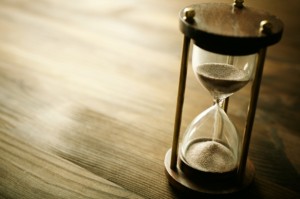How to Stay Productive In the Summer Heat!
In the sweltering heat of the summer months, it can become very difficult to stay productive during the day. The sun, humidity, and sweat seems to simply drain our energy and we feel lazy and lethargic – we just want to lie down with a cold lemonade and do nothing at all.
The good news is that you’re not alone. Research has shown the detrimental effect of heat on productivity; here are a couple of interesting studies:
1. Office workers who were exposed to temperatures of 75°F for keyboard tasks showed a reduction in their productivity of up to 40 or 50% compared to their peers at cooler temperatures for the same tasks and with the same clothing.
2. In another experiment, normally-clothed young people were asked to perform mental tasks. They were most comfortable at 80.5°F, however they exerted the least amount of effort and did the least work at this temperature. They performed the most work at 68°F.
So how exactly do we fight the lazy summer days and stay productive in the middle of the heat?
Here are some practical tips on how to take the heat:
1. Try to get the most demanding work done in the early hours of the day, ideally after Fajr until mid-morning (around 10am). It is especially to get your work done at these cooler, early hours if your work involves doing tasks outdoors.
2. Avoid going outside in the middle of the day when temperatures are at their highest point. You want to avoid getting a sun burn, sun stroke, or feeling extremely fatigued upon returning home. It is known from the seerah that the Prophet Muhammad (peace and blessings of Allah be upon him) used to delay Dhuhur prayer in the hot summer months to wait for the heat to calm down. On the authority of Abu Dhar, he said: “We were on a journey with the Prophet (peace be upon him) and the Mu’adhin (caller to Prayer) wanted to call the Adhan for the Zhuhr Prayer. The Prophet (peace and blessings be upon him) said, ‘Let it get cooler.’ He again wanted to call the Adhan, but the Prophet (peace be upon him) said to him, ‘Let it get cooler,’ until we saw the shadows of the hillocks become equal to their sizes. The Prophet (peace be upon him) then said: ‘The severity of heat is dispersed from Hellfire, so when the temperature gets very hot, pray (the Dhuhr Prayer) when it becomes cooler.” (Al-Bukhari)
3. Drink lots and lots of water, and eat lots of summer fruit (melons, berries, etc). Carry a water bottle and cup with you to stay hydrated and mentally fresh throughout the day. Don’t forget to drink in sips rather than big gulps and also refresh yourself with plenty of summer fruits.
4. Reduce the usage of air-conditioning devices in your life. I know this sounds counter-intuitive, but the constant use of A/C in every part of our life (car, home, office, masjid) makes us less adaptable and tolerant of the summer heat. Moreover, it is quite unhealthy for our bodies to adjust from boiling heat outside to freezing air conditioning indoors, within a matter of seconds! I’ve recently tried to minimize my use of air-conditioning and to be honest, it doesn’t feel too bad and I feel healthier in fact.
Here are some tips to reduce A/C in your life (also, you’ll reduce your electric bill!):
• Do wudhu with cold water; wash your hands and face with cold water; take a cold shower.
• Cool your room 1 or 2 hours before you sleep, then turn off the A/C when you hit the bed, and turn on the fan instead. (Yeah, you might sweat but trust me, waking up for Fajr will be so easy!)
• Open your car windows when you drive
• Open your office windows and have a fan to ventilate the room
May Allah (Subhanahu Wa Ta’ala) ease the heat of the summer months for us and protect us from the more intense heat of Hellfire. Ameen.

